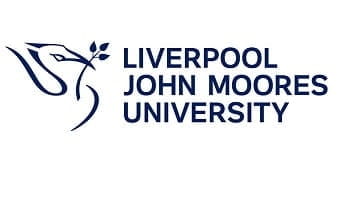Course modules
Discover the building blocks of your programme
Further guidance on modules
Modules are designated core or optional in accordance with professional body requirements, as applicable, and LJMU’s Academic Framework Regulations. Whilst you are required to study core modules, optional modules provide you with an element of choice. Their availability may vary and will be subject to meeting minimum student numbers.
Where changes to modules are necessary these will be communicated as appropriate.
Core modules
International Trade and Global Transport Systems
20 credits
20 credits
This module focuses on understanding key influences on the international trade market, especially their impact on global logistics flows and international freight transport operations, including intermodality and the legal aspects of export sales and goods movement. It introduces students to transport options for international shippers, considering operational and economic factors and guiding transport mode selection. The module also delves into the legal foundations of international export sales and carriage contracts, addressing cargo claim conflicts and dispute resolution. Learning methods include lectures, tutorials, online activities, virtual classrooms, email support, and summative tests.
Logistics and Supply Chain Management
20 credits
20 credits
This module offers insight into the principles of logistics and supply chain management, particularly in the context of the global business environment. It systematically introduces the key elements of logistics and supply chain management. The module is delivered through distance learning, which includes lectures, tutorials with online activities and exercises, virtual classrooms, email support, and summative tests.
Port Management and Security
20 credits
20 credits
This module offers students insights into global trends in port administration, governance, and management, with a focus on contemporary security issues in the maritime and ports sectors and the effectiveness of mitigation policies and practices. It provides an overview of the global port industry and the evolving role of ports, emphasizing the diverse functions of port authorities. The module also explores the public interests and commercial factors influencing national-level port administration and corporate-level port governance. Contemporary issues are examined through relevant case studies, and students are introduced to key legislation and its effectiveness.
Maritime Economics and Management
20 credits
20 credits
Research Methods
10 credits
10 credits
Project Management
10 credits
10 credits
MSc Project
60 credits
60 credits
Optional Modules
Chartering and Carriage of Goods Law
20 credits
20 credits
This module aims to cultivate an understanding of the law and practices related to export sales and the movement of goods, particularly concerning the carriage of goods by sea, shipbroking, and vessel chartering. It enhances students' comprehension of legal matters by applying them to the examination of goods carriage and export sales.
Marine Technology Management
20 credits
20 credits
Law and Marine Insurance
20 credits
20 credits
Maritime and Offshore Safety Analysis
20 credits
20 credits
This module is structured to facilitate students' comprehension and application of formal safety design, assessment, and review protocols in maritime, offshore, and port settings. It furnishes the foundational knowledge necessary for the implementation of formal maritime safety assessment procedures.
Career paths
Further your career prospects
LJMU has an excellent employability record with 96% (HESA 2018) of our postgraduates in work or further study six months after graduation. Our applied learning techniques and strong industry connections ensure our students are fully prepared for the workplace on graduation and understand how to apply their knowledge in a real world context.
Fees and funding
Entry requirements
You will need:
Qualification requirements
Alternative qualifications considered
The requirements for entry to the award programme are as follows: An honours degree (2:2 or above) or equivalent in Maritime, Transport, Logistics, Business, Management or related studies. or A level 5 qualification in a relevant subject area along with evidence of experiential learning in the maritime industry, such as a class 1 certificate of competency. All applicants must provide evidence of competence in English. Applicants are required to have achieved an IELTs score of a minimum of a 6 (minimum of 5.5 in each component) or equivalent English language qualifications. Applicants with an unclassified degree and significant relevant industrial experience may be considered. The decision regarding acceptance onto the programme is the responsibility of the Programme Leader.
How to apply
Securing your place at LJMU
Your university life
From accommodation and academic support to clubs and societies. Find out what LJMU has to offer.
Talk to our students
Connect with a current LJMU student for advice and guidance on university life, courses and more.
See what our students are saying
At LJMU we want you to know you’re making the right choice by studying with us. You can see what our students are saying about their experience with us through their reviews on the following websites:
Related Links
News and views
Browse through the latest news and stories from the university










The University reserves the right to withdraw or make alterations to a course and facilities if necessary; this may be because such changes are deemed to be beneficial to students, are minor in nature and unlikely to impact negatively upon students or become necessary due to circumstances beyond the control of the University. Where this does happen, the University operates a policy of consultation, advice and support to all enrolled students affected by the proposed change to their course or module.









